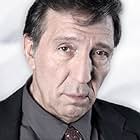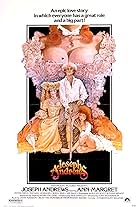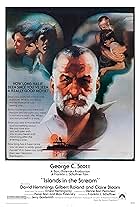Early Spain of the 20th century. Bad luck, misery and tragedies are a trend in Pascual Duarte's family. But when the weight of the things are too heavy to bear, a reckless man who only follo... Read allEarly Spain of the 20th century. Bad luck, misery and tragedies are a trend in Pascual Duarte's family. But when the weight of the things are too heavy to bear, a reckless man who only follows his impulses, will fall into a descent to madness that slowly alters the course of his ... Read allEarly Spain of the 20th century. Bad luck, misery and tragedies are a trend in Pascual Duarte's family. But when the weight of the things are too heavy to bear, a reckless man who only follows his impulses, will fall into a descent to madness that slowly alters the course of his life and of others as well.
- Awards
- 2 wins & 1 nomination total
- Rosario
- (as Diana Perez de Guzman)
- Madre de Lola
- (as Carmen de León)
Featured reviews
This is a depressing and austere but acceptable movie based on Camilo Jose Cela's novel , though the film is set in the Thirties and the famous book is in the Twenties .This Pascual Duarte 1976 turns out to be an extremely slow-moving and minimalist tale , containing some really shocking images about animal slaughter as a dog and a mule , as both of them were actually killed in cold blod . As the yarn results to be cold and concise with stern narration and various brooding , piercing flashbacks . It shows misery , poverty , and desperation of the countryside people in the 20s and 30s with subsequent proclamation of the Spanish Republic . The picture pays tribute to silent classic movie "Seven Chances" by Buster Keaton when Pascual and his sister go to the cinema and watching this hilarious film. Main and support cast are frankly excellent. Stars Jose Luis Gómez in his film debut as a desperado man who follows his own impulses through a descent to craziness until a tragic finale . He won Cannes Award to Best actor , competing nothing less against Robert De Niro who was nominated for Taxi Driver . Being accompanied by a good cast as Héctor Alterio , Paca Ojea , Joaquin Hinojosa , Eduardo Bea , Francisco Casares and Eduardo Calvo .
Well produced by prestigious producer Elías Querejera , though it was heavily censored by the strict Spanish censorship . And special mention for the realistic and evocative cinematography by cameraman Luis Cuadrado , in spite of at the time he was blind . As well as sad and stinging musical score by Luis De Pablo. The motion picture was competently made by Ricardo Franco. This was his second one , his first independient film was El Desastre of Annual (1970) . Subsequently , directing several decent , interesting and provoking films as Restos Del Naufragio, San Judas de Frontera , Sueño de Tanger , Berlín Blues , Después Tantos Años, La Buena Estrella and Lágrimas Negras . Rating 6.5/10. The yarn will appeal to Spanish cinema aficionados .
Ricardo Franco's film "Pascual Duarte" is based on Camilo José Cela's novel "The Family of Pascual Duarte", which is part of a literary generation called "Tremendismo" whose goal is to show shocking, tremendous and awful events happening to characters of society. Both are brutal, depressing and extreme in its characterization of violent acts commited by a common man. The title character is played by Jose Luis Gómez, on a devastating and unforgettable performance. Through flashbacks, he recounts his simple yet tragic life and the events that led to his emprisonment. The Duarte household was a mess with a drunk father (Héctor Alterio) who feels superior to everyone because he can read, unlike his wife and Pascual's mother (Paca Ojea), an illiterate woman who suffer on the hands of this man but she also fights back. They are simple people, living of the land but they're also stricken by poverty which affects everybody early on, and to each displeasing situation that comes his way, Pascual uses of threats, violence and killings, and no one is spared.
The movie is a grievous examination of the human condition in its dark corners and how such corners can be found in the quietest of the inviduals or as some would the least likely person to become a murderer. Unlike a serial killer who commits murders to please himself, Duarte is man who reacts in such extreme way in order to estinguish the shame and embarrasment people made him feel, or as revenge from wrongdoing committed with his young sister Rosario (Diana Pérez de Guzmán), the only he ever felt some affection until he meets his wife Lola (Maribel Ferrero), and there's also some violent acts that feels like a "payback" against life whenever a tragic hits him hard.
That latter description coems to the two gruesome killings of the story which is the infamous shooting of his dog and the stabbing of his donkey, which are all shocking to see since they were done, apparently, for real (can't exactly prove about both instances since the one with the donkey a couple of editing tricks could be done; and the dog scene there's a quick glitch in the image despite being a full-minute uncut shot filmed from one perspective). Those poor animals serve as an excuse for Pascual after losing family members (the movie) or some deeper reasoning/motive (the novel, which explains exactly why). While in the book, those aspects are somewhat "understandable" in the movie they become arbitrary and senseless - it took me a second view to find an ulterior motive for such inclusion in the story.
Duarte doesn't know other way of dealing with things, events and people. Violence is the answer, he needs to lash out against anyone who poses as a threat or become a source of bothersome and when you analyze each moment goes in his spiral of madness and brutality where everything becomes a matter of question for the audience you begin to analyze in a similar way, and if it was true to a character living under the rise of Francisco Franco and Fascism, who can't say we don't have similar out of control attitudes in our daily lives. Everytime everywhere people are super mad all the time on the news and in our neighborhoods and some folks just cross the line after reaching a breaking point and that's left is to kill the "enemy" even if the harm wasn't all that important.
As said, I've watched it two times because the first time it felt many things were missing and I haven't read the book. There were many intriguing sequences that I needed some answers or some explanation. After reading the novel in one day, I immediately got back to it and there was some improvement. It's a pretty decent adaptation though many drastic changes take place. If you're not interested in the movie despite reading this or other reviews I still advise you to find the novel, since Cela creates a very compelling work where you get the know the inner side of Pascual (since he narrates the whole thing) and even a sense of empathy can be found on him, he's pitiful whilst in the movie he's quite hateful because the screenplay makes him a distant, cold, almost silent character and most of his actions are told in a matter that you have filling the blanks (most viewers hate that). You don't feel his existentialism, his sadness neither some meltdown moment. He just eliminates what's bothering him.
Yet the main core of ideas is present in the movie, though the director thought it'd be interesting to place the setting during Franco's early years in order to make an allegory about the period and criticize it as well - after all, the man had died in the previous year of the film's release. The tyranny of such regime worked in the same sickening progressive way as Pascual's quest for blood.
Besides the theme of violence, there's plenty of room to deal with the dangers of alienation and how little by little the man is torn apart from his good ideals, becoming blind to everthing and everyone, except for his own pain. And it's interesting to notice that the film was in the 1976 Cannes Film Festival lineup, losing the Palme D'or to "Taxi Driver" but Jose Luis Gómez won Best Actor prize for this one. Both films dealing with loneliness, alienation, violence and characters at the verge of losing their minds and acting against everything and everyone, difference being that De Niro's character has some cause, some idealism whereas Pascual into his own ignorance just reacting to people and things in a negative and dangerous way.
It's not an easy movie but it's one that makes its point quite clear. It's a movie that dares audiences to question about themselves (what if we were to become like that man? Would be we doing the same exact choices or we find ways to control ourselves), question about the reality seen on media or our day-to-day reality as well. It's not destined to have a deeper meaning, but it certainly makes provoking reflections about the dark side of the human condition and the continuious struggle most of us make to remain sane in a chaotic world. As for Pascual, all is lost and fate had nothing to do with it. 6/10.
Storyline
Did you know
- TriviaIn a short scene when the characters watch a movie in a cinema, it is Buster Keaton's silent movie: "Seven Chances" (1925)
- ConnectionsFeatured in The Footprints of a Spirit (1998)
Details
Contribute to this page






















